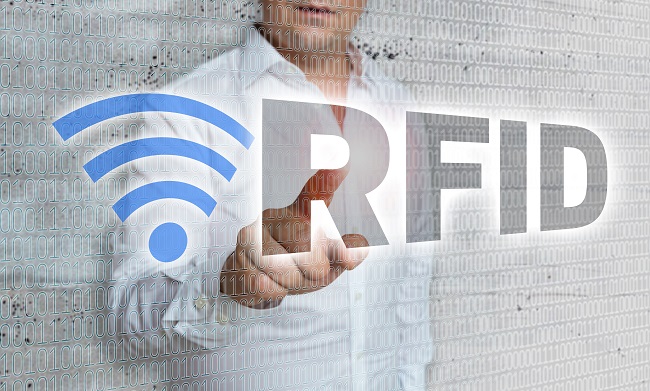Millions of them are everywhere, but you may not see them: on clothes, on food ingredient packaging and even on the football field. Initially designed to move products through supply chains, their use is expanding exponentially.
What are they? RFID tags, which are small, paper-thin tags with an electromagnetic chip that gives an item its own serial number identity for detection up to several yards away. RFID – an abbreviation for radio-frequency identification – uses radio waves to identify products or any objects that have a tag.
“Data from large quantities of products or items can be summarized all at once, recording literally hundreds of items in just seconds,” says Justin Patton, director of the Auburn University RFID Lab.
The RFID Lab is an internationally renowned research institute focusing on RFID and other emerging technologies, with faculty and students from Auburn’s Raymond J. Harbert College of Business, the Samuel Ginn College of Engineering and the College of Human Sciences.
“A retail employee can use an RFID scanner by simply walking along an aisle and waving the scan gun up and down the shelves,” says Patton. “Everything within the scan gun’s range, or wave, will be recorded by the scanner. We can inventory hundreds of items per second.”
Indeed, Auburn is collaborating with major retailers on tracking products through the supply chains – as well as working with restaurant chains in tracking the freshness of ingredients by placing tags on the packaging.

“An example of how RFID technology improves sales service is how product availability affects the overall customer experience,” says Patton. “The improved data and accountability with the RFID system helps eliminate such issues and make it easier and faster to find merchandise, especially in cases where numerous products might be stored in a crowded storage area and to easily know the dates when items go through the supply chain.”
The RFID Lab’s ARC program works to ensure that RFID tags are able to “meet or exceed the levels of performance and quality necessary to provide benefit to the end user in a consistent and cost-effective manner.” ARC works with end users in retail, aviation and manufacturing to identify the performance and quality requirement of each RFID tag, and maintains a database that stores comprehensive performance and quality data of market-available RFID tags.




